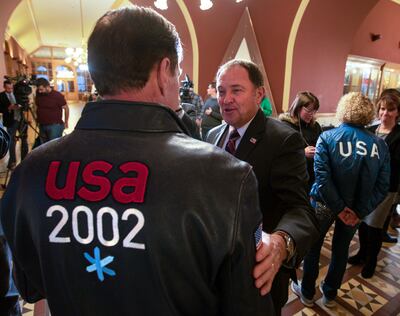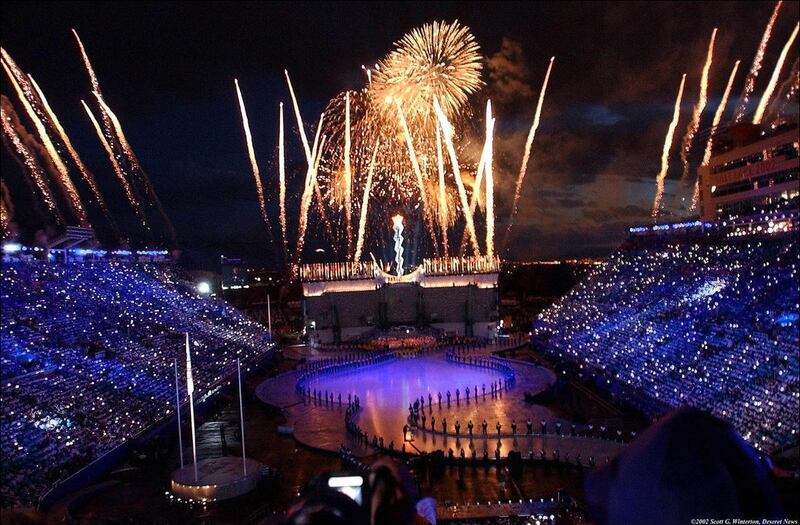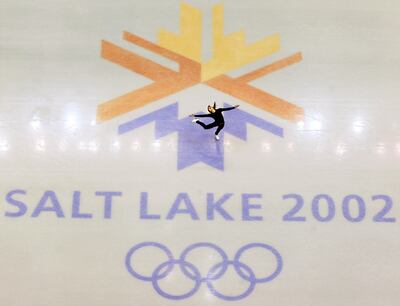SALT LAKE CITY — The chances of Salt Lake City getting another Winter Games got a boost Wednesday with the International Olympic Committee's move to a more flexible bidding process focused on finding enthusiastic host cities.
"It magnifies our strengths and we play right into what they're looking for," said Fraser Bullock, chief operating officer of the 2002 Winter Games in Salt Lake City and a leader of the effort to bring the Olympics back. "It has to be when, not if."
Salt Lake City was selected late last year as the U.S. Olympic and Paralympic Committee's choice to bid on behalf of the United States for an unspecified future Winter Games, possibly as soon as 2030.

Bullock said Salt Lake City will benefit from the new process because of the high level of public support, seen in a 2018 USOPC poll that found more than 80% of Utahns backed the bid.
IOC members meeting in Lausanne, Switzerland, adopted a new process that does away with deadlines and other formalities just two days after naming Milan-Cortina in norther Italy as the host of the 2026 Winter Olympics.
Now, separate Winter and Summer Games commissions will be responsible for recommending and even recruiting future Olympic hosts, but only after gauging public support for an event with a price tag measured in billions of dollars.
"We can't, I suggest, continue to be damaged as we have been in the past," Australian IOC member John Coates said during his presentation on the process, referring to cities that have dropped their bids after losing at the polls.
Last November, voters in Calgary, Canada, rejected bidding for the 2026 Games, forcing the city to pull out of the running and increasing concern others might follow suit. That led to speculation the IOC could turn to Salt Lake City for 2026.
But Milan-Cortina and Stockholm, Sweden, stayed in the race. A factor cited in the Italian victory was greater support there for hosting an Olympics than in Sweden's capital, as determined by IOC polling.

What's being called the Future Host Commission should be satisfied there is solid support for a bid, including the needed legal and financial guarantees, before advancing it to IOC leaders, Coates said.
"We have to avoid too many losers," he said, repeating a statement first made by IOC President Thomas Bach when the decision was made to award two Summer Games at the same time, 2024 to Paris, and 2028 to Los Angeles.
That could mean the new commission sorts through bid cities and recommends one host now while others are encouraged to keep working toward the next Olympics or beyond, creating a pipeline of potential picks.
Just when those recommendations would come is also up to the new commission. The IOC's action Wednesday eliminated the language in the Olympic Charter requiring bid cities to be named seven years before the Games.
Changes also address other cities, regions and even countries being considered hosts and allowing for more existing facilities and infrastructure to cut the costs of an Olympics.
That came up in the competition to be named the U.S. Winter Games candidate when Denver proposed as an option holding some competitions in Utahinstead of building a bobsled, luge and skeleton track or other costly venues.
Coates told the IOC members that a bid with all of the competition venues close enough together that athletes can all be housed in a single Olympic village — as Salt Lake would do again in a future Games — is "utopia. That's what we want."
But he also made it clear that the strongest initial bid is not guaranteed a Games, after some IOC members raised concerns that without a more defined process, some cities not ready to bid right away could lose out.

"If they get one outstanding bid, I think it would be very wrong to suddenly present it" for quick approval, Coates said. Instead, a strong bid should be used to remind other cities they "need to get cracking."
Salt Lake City was not mentioned by name in Wednesday's discussion, but during a news conference later, Bach described Sapporo as a contender for 2030, after the Japanese city withdrew from the 2026 race following an earthquake.
"This city has our telephone number," Bach said when a Japanese reporter asked whether the new process offered any advantages to the bid. "We will, of course, look at different options. But it's also no secret" Sapporo intends to bid again.
The new process, Bach said, means "we can start having a conversation with Sapporo and other interested cities that have also already, in a more or less formal way, indicated their interest."
He also suggested Stockholm could come back for another bid.
Before the IOC starts talking with potential Olympic hosts, the details of the process need to be worked out and the members of the commissions named. Bullock said Salt Lake will wait for direction from the national Olympic committee.
"I don't believe the IOC is ready today to start a dialog but now they have a plan," he said, anticipating it will take several months to put the finishing touches on the new bid process.
The U.S. Olympic and Paralympic Committee had little to say about the specifics of what's next for Salt Lake City.
"We very much want to host the Olympic Winter Games again in the U.S., and when we believe the time is right, Salt Lake City will be our partner," spokesman Mark Jones said in a statement to the Deseret News.


